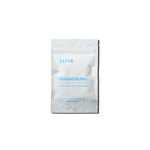When we hear the term postnatal depression (PND), we often think of mothers. The focus tends to be on their emotional and physical recovery after giving birth, which makes sense – their bodies have been through a lot. But what about new fathers? They may not have experienced pregnancy or childbirth, but they’re also going through a significant life change, and many of them experience postnatal depression too.
Surprisingly, up to 1 in 10 new dads experience symptoms of PND. It’s less talked about, but just as real and impactful.
What Does Postnatal Depression Look Like in Dads?
For men, PND can often fly under the radar. Fathers might feel pressure to ‘keep it together’ for their family, which makes recognising and admitting their own struggles even harder. The signs can sometimes be dismissed as stress or tiredness from sleepless nights, but when they persist, it’s important to take them seriously.
Common signs include:
Irritability and anger: A short temper or feelings of frustration can build up, especially when things feel overwhelming.
Withdrawal: New dads may feel disconnected from their baby, partner, or friends, leading to isolation.
Fatigue: While tiredness is par for the course with a newborn, it’s the emotional exhaustion that can be a key indicator.
Anxiety: Worrying about being a good father or the responsibilities of parenthood can spiral into constant anxiety.
Low mood: Feeling down or hopeless, even when things are going well, can point to something deeper than just adjusting to parenthood.
Why Do New Dads Get PND?
It’s tempting to assume that because men don’t experience the physical side of childbirth, they’re spared from PND. But the emotional impact of becoming a parent can be just as profound for dads. Factors like lack of sleep, financial worries, changes in relationship dynamics, and feeling unprepared for fatherhood can contribute. In some cases, there may also be hormonal changes at play – testosterone levels can dip after the birth of a child, which might influence mood.
It’s also worth considering that if a partner is experiencing PND, it can increase the likelihood of the father being affected too. Parenting is a team effort, and if one person is struggling, the other can feel the weight of that strain.
How Can Dads Get Help?
The good news is that help is available, and the sooner new dads reach out, the better. It’s important for them to acknowledge that their feelings are valid and that it’s okay not to feel okay. Opening up to a partner, friend, or healthcare professional is the first step. Therapy, support groups, or even just regular check-ins with loved ones can make a world of difference.
It’s also crucial that fathers take time to look after their own mental health – even when that feels like the last thing they have time for. Whether it’s getting outside for a walk, asking for help with baby duties, or finding moments to connect with others, self-care isn’t selfish; it’s necessary.
Postnatal depression in new dads is real, and it deserves more attention. It’s important to create a space where men feel able to share their experiences without stigma. If you’re a new dad and this resonates with you, know that reaching out for support is a sign of strength, not weakness. Parenthood is a massive adjustment, but you don’t have to navigate it alone.










